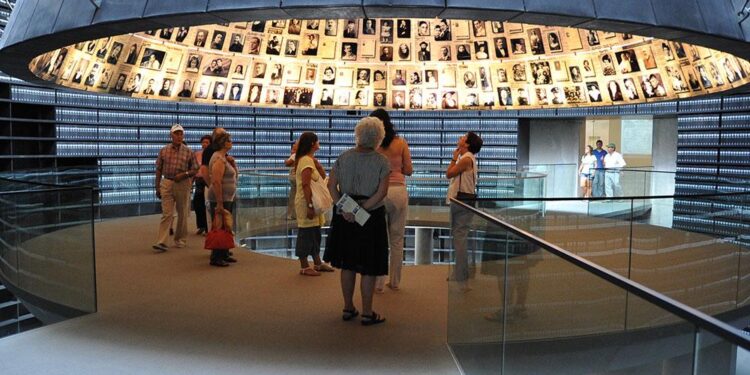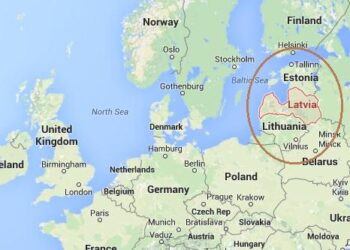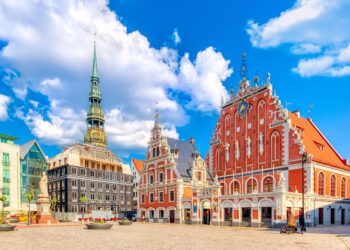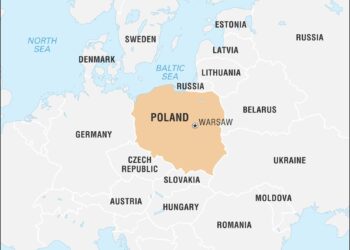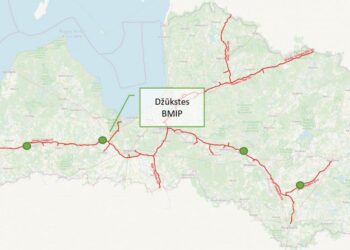Global Outcry Following Latvia’s Suspension of Cukurs Investigation
The recent decision by Latvia to halt its investigation into the wartime actions of Herberts Cukurs, known as the “Butcher of Riga,” has ignited notable international backlash. Yad Vashem, Israel’s foremost Holocaust memorial and research center, has voiced strong opposition to this move. Cukurs was a Latvian operative linked with Nazi forces and is accused of perpetrating horrific crimes against Jewish individuals during the Holocaust. His involvement in orchestrating mass killings in Riga raises profound concerns among historians, survivors, and advocates for justice. Yad Vashem is now calling on Latvian authorities to reassess their stance on this crucial matter of historical accountability and remembrance.The implications of latvia’s decision resonate beyond its borders, highlighting an ongoing struggle for truth and reconciliation in societies grappling with their pasts.
Yad Vashem’s Strong Condemnation
Yad Vashem has expressed deep disappointment regarding Latvia’s choice to discontinue investigations into Herberts Cukurs’ wartime actions. This prominent Jewish memorial underscored that holding individuals accountable for war crimes—notably those committed during the Holocaust—is vital for societal integrity. Given that Cukurs was implicated in the deaths of thousands during world War II, ceasing this inquiry raises troubling questions about society’s commitment to confronting its violent history. Yad Vashem emphasized that ignoring these dark chapters not only denies justice for victims but also hinders broader societal healing processes.
The condemnation from this Jerusalem-based institution reflects a growing frustration among human rights advocates, who are increasingly concerned about Latvia’s historical narrative and its reluctance to confront uncomfortable truths. In an age where collective memory is essential for future generations, Yad Vashem’s statement highlights a larger struggle against rising antisemitism while emphasizing the necessity for open discussions regarding complicity in past atrocities. The failure to prosecute figures like Cukurs sends a disheartening message that suffering inflicted upon innocent lives may be overlooked or minimized; thus there is an urgent call for international engagement aimed at uncovering historical truths while ensuring justice prevails.
The Controversial Legacy of Herberts Cukurs During WWII
Herberts Cukurs remains a polarizing figure within discussions surrounding Holocaust history due to his collaboration with Nazi forces during World War II—especially his role in mass extermination efforts targeting Jews in Latvia. His involvement with groups such as Einsatzgruppen, along with his establishment of the Riga Ghetto, are critical elements contributing to his infamous legacy as he facilitated deportations leading directly to countless murders. Despite these grave actions resulting in immense suffering within Jewish communities, some factions within Latvia have attempted to portray him as a nationalist hero resisting Soviet control—a narrative that continues generating significant divisions regarding contemporary understandings of history.
The recent closure by Latvian authorities concerning investigations into Cukurs’ crimes has provoked outrage from both historians and survivors alike who view it as part of a disturbing trend toward Holocaust denialism or revisionism. This situation raises pressing questions about nations’ responsibilities when confronting their wartime histories while considering how such denials affect collective memory today.
A call against Historical Distortion Efforts
The decision made by Latvian officials not only impacts local communities but also resonates globally among those dedicated to preserving memories related specifically towards experiences endured by Holocaust victims.Yad Vashem has been particularly vocal against this closure; they stress that accountability plays an essential role when addressing historical injustices linked directly back thru time.
This case exemplifies troubling trends where perpetrators are often romanticized or their heinous acts downplayed—a distortion undermining both survivor narratives and lessons learned from one humanity’s darkest periods.
- Educational initiatives: Develop programs aimed at educating younger generations about authentic accounts surrounding the Holocaust.
- Legal frameworks: Create laws targeting hate speech alongside any attempts at distorting established facts related historically significant events.
- ceremonial observances: Organize events honoring victims while promoting awareness around these issues still relevant across societies worldwide!
- Cross-border collaborations: Foster partnerships between international organizations focused on maintaining integrity throughout shared narratives across different cultures involved historically!
Pledging adherence towards these practices becomes paramount if we wish foster collective obligation ensuring accurate remembrance without allowing history itself being rewritten or forgotten entirely! Societies must recognize dangers posed by permitting unchecked denialism persist unchallenged moving forward together towards brighter futures built upon understanding rather than ignorance!
Main Takeaways
The recent suspension on investigating Herberts Cukurs—the so-called ‘Butcher Of Riga’—has reignited critical conversations surrounding accountability tied directly back through time alongside preservation efforts aimed at safeguarding our shared human experience! With mounting scrutiny directed internationally towards implications stemming forth from closures like this one raise vital inquiries regarding moral obligations nations hold when facing past transgressions ensuring shadows cast do not repeat themselves again! Advocates continue pushing forward advocating thorough reckoning necesary honoring memories lost forever amidst chaos wrought long ago yet still echoing loudly today!


